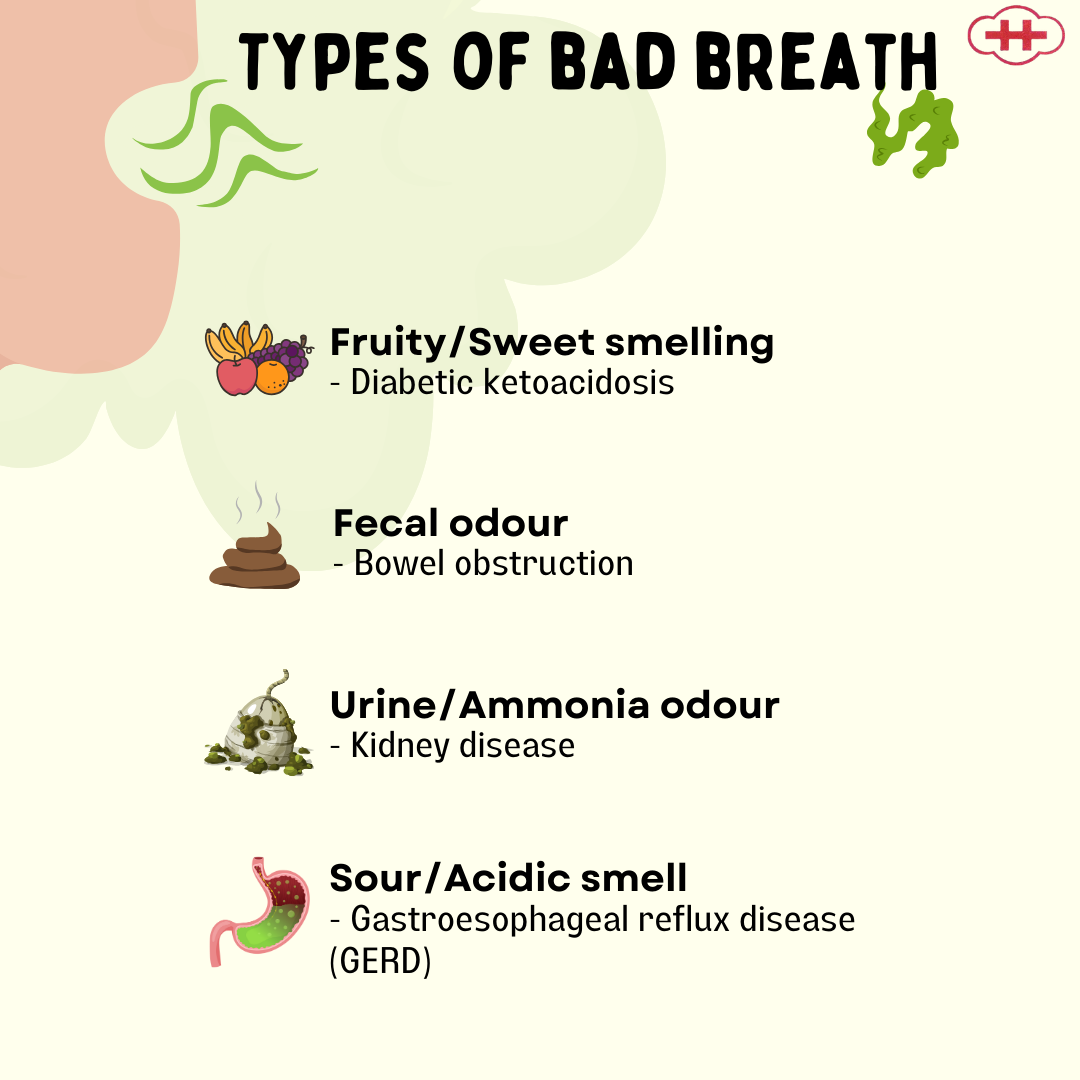Details
Halitosis, commonly known as bad breath, can be embarrassing and even anxiety-inducing. In this article, we will explore some of the most common causes of halitosis and discuss methods to alleviate this troublesome condition. There are various potential causes of bad breath, with poor oral health and hygiene being the most prevalent. Improper brushing and flossing can leave food particles trapped in the mouth, fostering bacterial growth. These bacteria interact with amino acids in food, producing sulfur compounds that cause unpleasant odours. If left untreated, the buildup of bacteria on the teeth and gums can lead to plaque formation, which, when not removed, may result in gingivitis and eventually periodontal diseases. Dietary choices also play a significant role in bad breath. Foods like garlic and onions contain sulfur compounds that are released when digested and linger in the mouth. These compounds are absorbed into the bloodstream and expelled through the lungs, contributing to persistent bad breath. The saliva we produce cleanses the mouth, removing food particles that cause odour. A condition known as dry mouth (xerostomia) causes reduced saliva production, making it harder to eliminate food debris, which then leads to bad breath. Causes of dry mouth include side effects of certain medications, Sjögren's disease, diabetes, and radiation therapy. Smoking and tobacco use are also known to contribute to dry mouth, increasing the risk of gum disease and bad breath.
Figure 1: Common causes of Halitosis.
Besides being an outcome of various contributing factors, bad breath can also be a sign of underlying health issues. For example, individuals with uncontrolled diabetes may experience a fruity or sweet odour due to ketoacidosis. Bowel obstructions, which block the flow of waste through the intestines, can cause the breath to smell like faeces. A breath that smells of urine or ammonia may indicate kidney disease, as urea accumulates in the bloodstream. Additionally, gastroesophageal reflux disease (GERD), which causes stomach acid to flow back into the esophagus, can lead to sour-smelling breath with remnants of food or liquid.
Figure 2: Types of bad breath that may suggest underlying health issues.
The first step to ameliorating halitosis is maintaining good oral hygiene. Brush your teeth twice a day with fluoride toothpaste to remove food debris and plaque. Floss or use an interdental cleaner once daily to eliminate particles and plaque between your teeth. Using antibacterial mouthwash and toothpaste can further reduce plaque and bacterial buildup. Regular dental visits are crucial for the prevention and treatment of oral diseases. Next, limit the intake of foods that cause strong odours, such as garlic and onions. Instead, incorporate probiotic-rich foods like sugar-free yogurt, which can help reduce sulfur compounds in the mouth. Foods high in vitamin C, such as red bell peppers and broccoli, create an environment that is less hospitable to bacteria. Eating these foods raw can also help remove trapped food particles through their natural crunch. Staying hydrated by drinking more water can help prevent dry mouth, while chewing sugar-free gum or candies can stimulate saliva production, aiding in the removal of food particles and bacteria. In addition, quitting smoking will improve both your oral and overall health, significantly reducing the risk of halitosis and other related health issues.

 Contact Us
Contact Us Donation
Donation Volunteer
Volunteer Facebook
Facebook